So, you want to buy a house!? We’ve just purchased our third house in the last 8 years and I can confidently say that we’ve gathered some tips in the last little while. If you’re in the market for your first home, another home, or even want to buy a second property, I’ve got all the details on buying a house!
A few years ago I wrote a post about all the things you should do before moving into a new home. It’s one of the most popular, so I figured I could elaborate on the basics of buying a house. Oh, and I just added a bonus tip to that list, so go check it out!
Anyways, let’s go into the nitty-gritty in case you’ve never purchased a home before (or if it’s been a while).
Before You Make An Offer
Narrow Down Your Options
Whatever your reason for buying a home, I’m sure you’ve thought about a few things. Where will your new house be (aka town, neighbourhood, etc)? What type of house? What are you looking for (aka vacation property, main living space, rental, etc)? I suggest to write down a list of all the things you need from your new house, as well as the things that are “nice-to-have”.
Figure Out Finances
For most people, this means visiting your bank and looking at traditional mortgages. You can also talk to mortgage brokers, loan officers, etc. You’ll want to determine how much money you have to spend on your house. Figure out how much upfront cash you have to put towards the deposit, how much you can afford to pay each week/month, etc. I’d always suggest looking at houses that are cheaper than what the bank is willing to offer because you don’t want to stretch yourself too thin.
Find a Realtor/Look at Houses
I love looking at real estate listings online, and this will give you a good glimpse at what to expect. Once you have your finances in order, and you’ve made a list of things you need/want – this will also help you to see what’s available. From there, you can reach out to a realtor to work with you and start looking at properties. If you don’t have a real estate agent, you can always ask friends/family for a recommendation, visit an open house, or contact the seller for a house you’re interested in buying.
After You Make an Offer: Conditions
Once you’ve found “the one”, you’re going to need a realtor to help draw up a contract. You can always try to go without, but you’ll need to involve a lawyer to make sure everything is correct.
You’ll also need to put a deposit with the offer, and I’ve heard that between 500-2000 is pretty typical. Your offer will have two parts: the first will outline the conditions, with one date. And then they’ll be a second, further date which is the closing.
Essentially, you need to fulfil the conditions before you can purchase the house, and there are a few different ones:
Conditions
- Finance (Bank, Lawyers, Insurance): Even if you were pre-approved, you still need to work closely with the bank to get everything set. You’ll need to send them the signed offer, maybe some follow-up paperwork, etc. You’ll also need to find a lawyer and make sure the bank sends the appropriate paperwork. AND you might also need to have your house insurance setup too. (Oh, and sometimes the bank might even do their own inspection/appraisal on the property at this point too).
- Inspection: I’ve mentioned before, but it’s always a good idea to get a house inspection. Hopefully, you don’t uncover anything majorly wrong, but if you do, you have the option of backing out of the deal OR requesting a change of purchase price to cover the expenses.
- Selling Your House: A lot of people put the condition that they need to sell their house before they can commit to another one. This makes financial sense, especially if you can’t afford multiple mortgages, but we’ve never done this. I have no idea how long this condition would last, and/or if it’s just a floating timeline until you sell.
A note about conditions: if you’re in a tough/hot market and there are multiple offers involved, sometimes having fewer conditions is better. I’ve also heard of sellers who will refuse any offers that have a home inspection condition – but that’s a HUGE red flag.
Waiting to Close (AKA: Get Organized!)
Depending on if the house is vacant or not, you might have a quicker (or longer) closing. Our last two houses were both vacant, so it was less than a month between the initial offer and us getting it. Conversely, we met people who bought a house the same day as us, but they still don’t close/move-in for another few months!
Either way, there are a lot of things you’ll be doing now. So buckle up and get ready!
Lawyers
You most likely have your lawyers in place from before, but you’ll meet them near the closing date. There are a lot of papers to sign, and they should have a few things set for you (like getting the title, doing searches against liens, etc.). This is also when you’ll be paying the deposit for the house (in addition to the lawyer’s fees).
Oh, and you can also add an extra home visit (or two) to your initial offer. Our latest lawyers wanted to know if we wanted to visit the house one last time (we had extra visits written into the contract) to make sure everything was in place. (Think: all appliances included still there, no major changes since you put an offer in, etc).
Setup Utilities
If this is your first time setting up utilities, you’ll probably need to call and chat with someone to set up an account. There may also be an additional downpayment to make (that may be repaid a year later). If you already have accounts with the same companies, usually you can easily add a new address online.
Here are some of the utilities you may need:
- Natural Gas
- Hydro/Electricity
- Water/Sewer
- Equipment Rentals (it’s common to have hot water tank rentals in our area)
- Telecommunications (internet/tv/phone)
- Property Taxes (through the city, we pay ours with our mortgage)
- Garbage/Recycling Pickup (ours are included in the property tax, but I’ve heard of some places where it’s a separate fee/account)
- Rural area stuff (think propane tanks, potable water).
Order Appliances/Setup Renovations, etc.
Hopefully, your house is stocked with all the big things you need. But it might also need a bit of work before it’s move-in ready OR you may need some big appliances. It’s now a good time to purchase/measure for what you need, and schedule delivery for a time after you close. Same goes for getting your internet/phones hooked up!
Re-Route Mail/Change Address
We haven’t gotten this going yet, but it’s next on my to-do list! You want to change your address for all the mail you get. Sometimes, the post office will do a general re-routing of your mail to your new house (usually for a fee). BUT don’t forget about all the online accounts or things you don’t use often.
AND you’ll also have to change your address on things like your driver’s license, health card, car insurance, credit cards, etc. This website has a list to give you a better idea.
Moving Company/Get House Ready/Pack
Whether you’re moving across town or the world, you’ll most likely be bringing some stuff with you! You want to get your moving plan organized now and start packing. If you’re selling your house, you’ll probably already be purging and packing things away for that. (Oh, and I wrote a post about things you should leave when you sell your house).
I’m hoping this long post about the process of buying a house has prepared you for what to expect! Remember, depending how long your closing is, you may have a bit more time to organize. Let me know if I forgot anything too :)
Most of the other resources I found just had details about getting a mortgage/financing for your house. So definitely do your own search if you need more information about that!
And, check out my tips on things to do before you move in, what to leave when you sell your house or other general homeownership stuff.
More Resources:

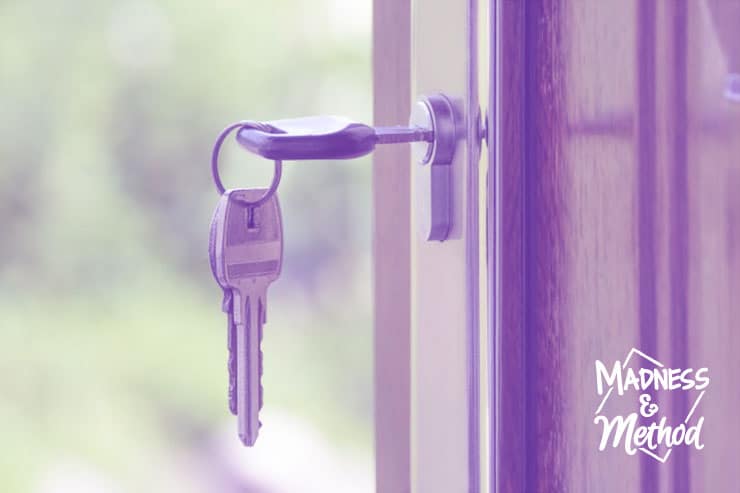
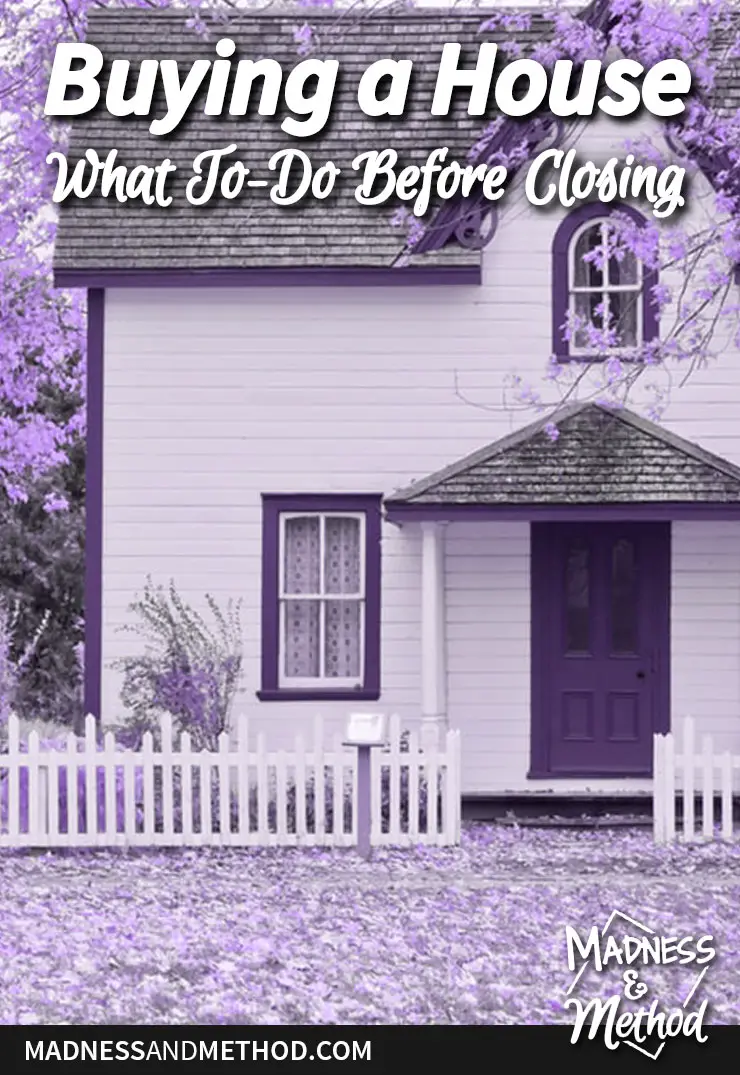
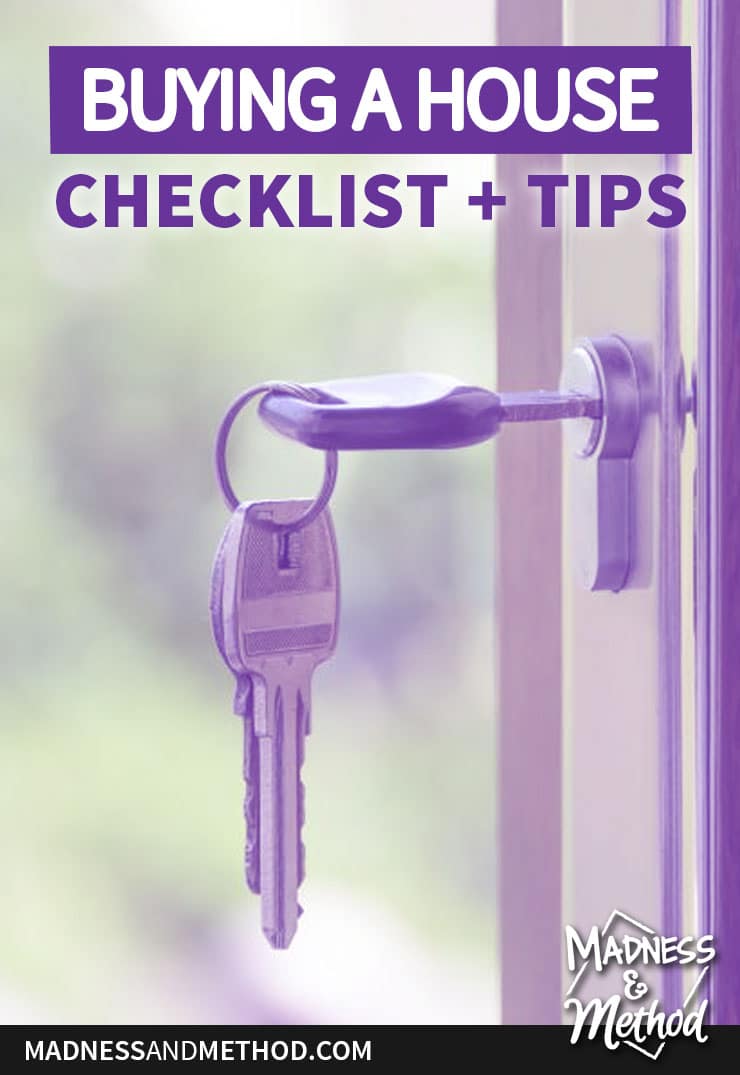
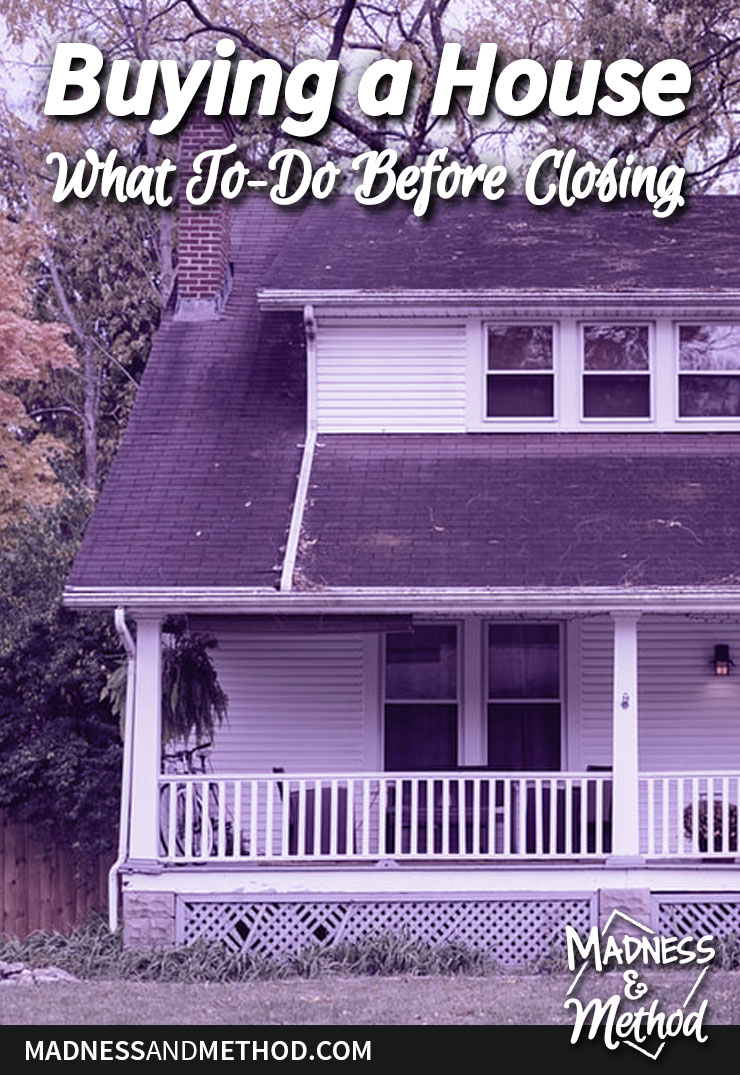
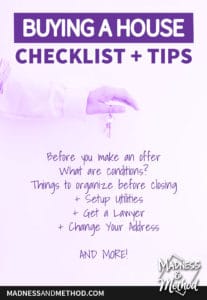
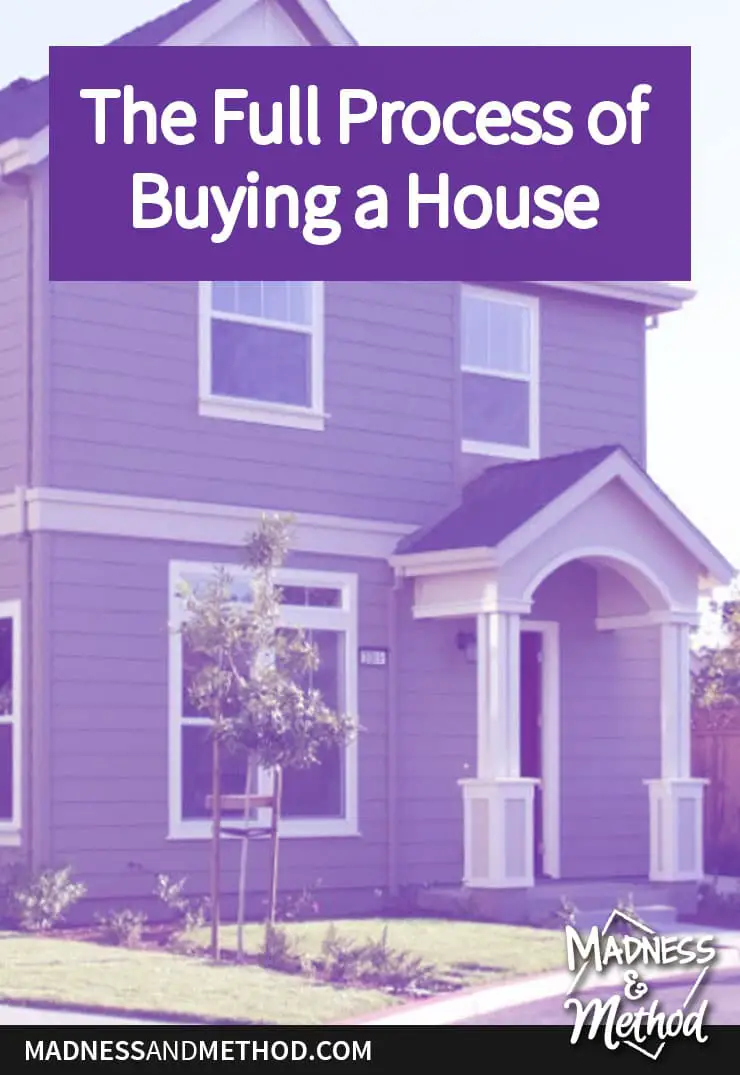


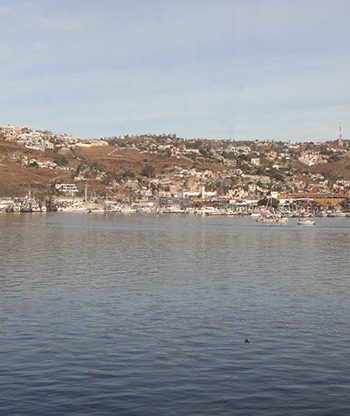
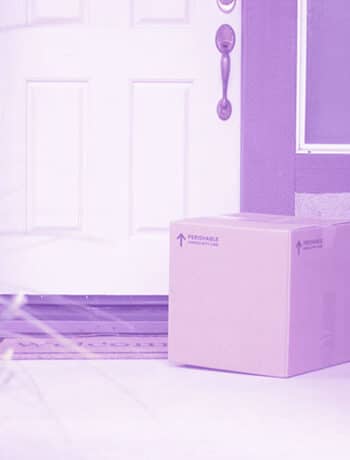
No Comments